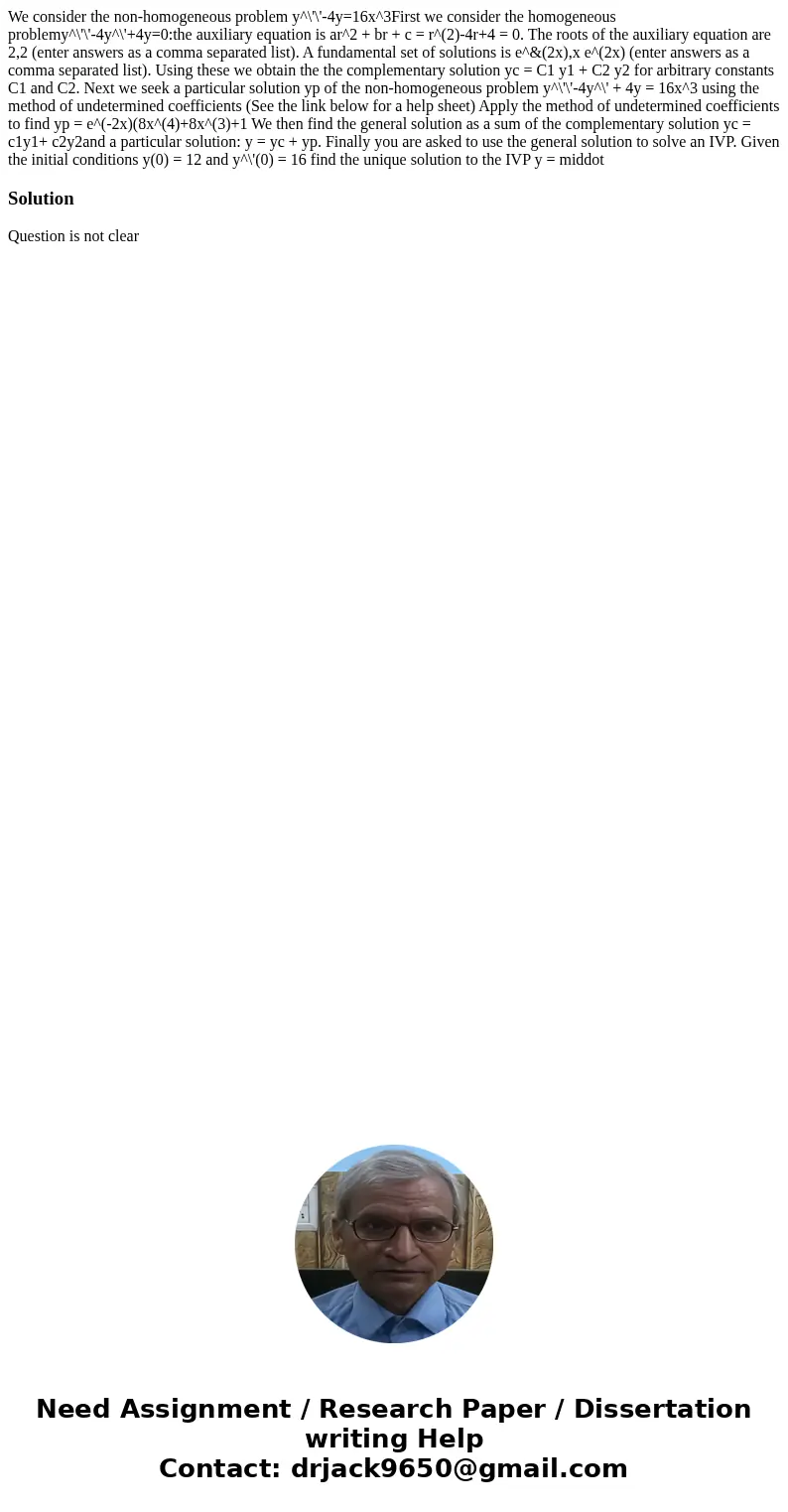We consider the nonhomogeneous problem y4y16x3First we consi
We consider the non-homogeneous problem y^\'\'-4y=16x^3First we consider the homogeneous problemy^\'\'-4y^\'+4y=0:the auxiliary equation is ar^2 + br + c = r^(2)-4r+4 = 0. The roots of the auxiliary equation are 2,2 (enter answers as a comma separated list). A fundamental set of solutions is e^&(2x),x e^(2x) (enter answers as a comma separated list). Using these we obtain the the complementary solution yc = C1 y1 + C2 y2 for arbitrary constants C1 and C2. Next we seek a particular solution yp of the non-homogeneous problem y^\'\'-4y^\' + 4y = 16x^3 using the method of undetermined coefficients (See the link below for a help sheet) Apply the method of undetermined coefficients to find yp = e^(-2x)(8x^(4)+8x^(3)+1 We then find the general solution as a sum of the complementary solution yc = c1y1+ c2y2and a particular solution: y = yc + yp. Finally you are asked to use the general solution to solve an IVP. Given the initial conditions y(0) = 12 and y^\'(0) = 16 find the unique solution to the IVP y = middot 
Solution
Question is not clear

 Homework Sourse
Homework Sourse